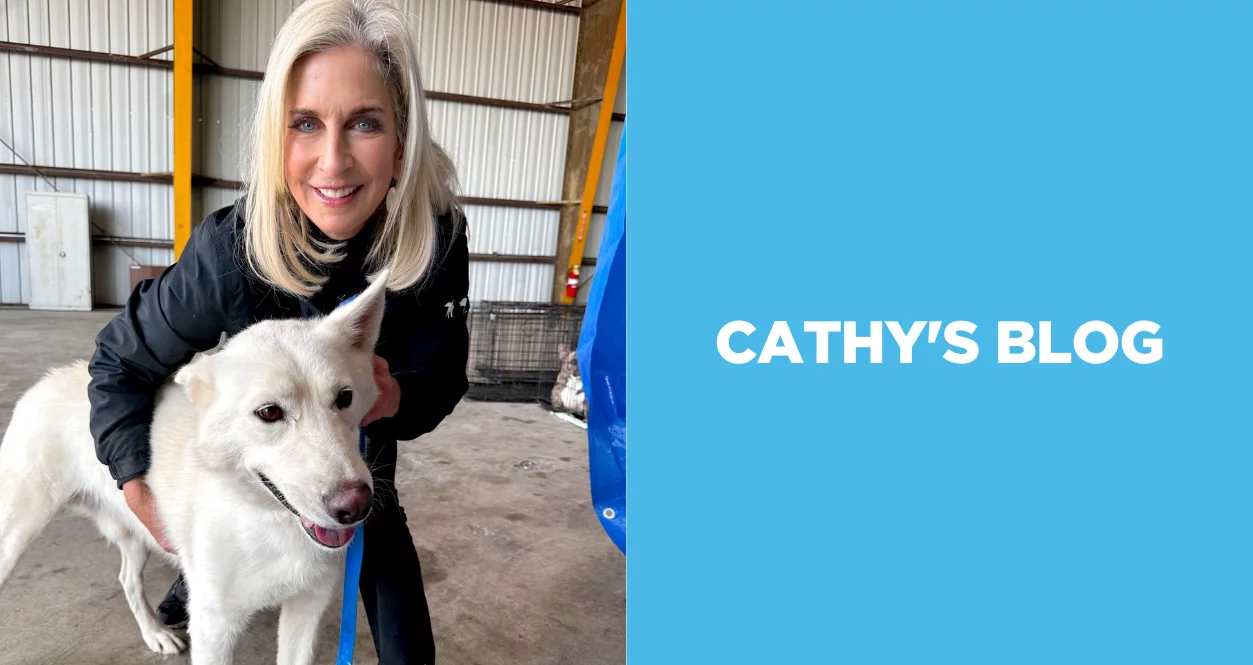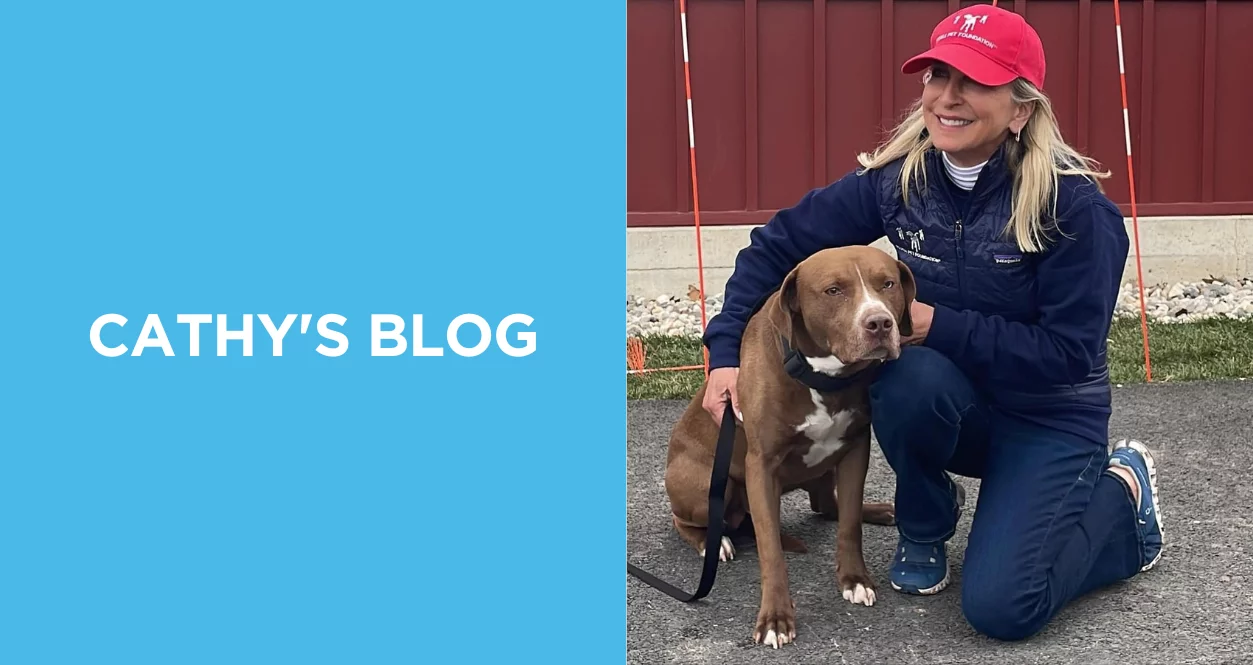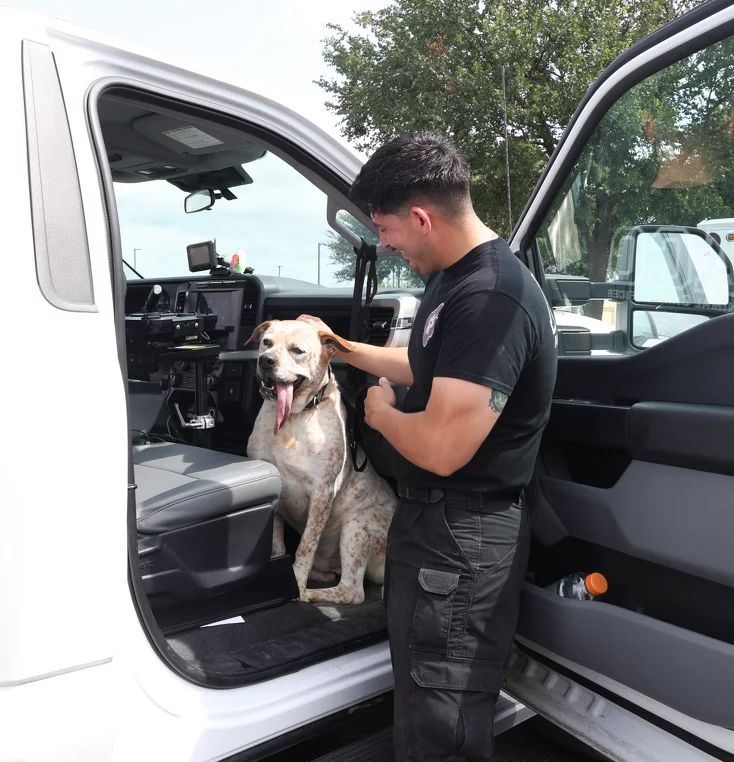Thinking of Starting a Pet Rescue? Read This First!
BISSELL Pet Foundation engages with rescue partners doing admirable work across the country. Rescues take a large number of pets from our transport programs and work tirelessly to find them loving homes. Rescues often take in pets that need extended foster care due to medical issues or provide safety and comfort to expectant mothers. While they have a vital and noble mission, the climate for rescue groups has become complicated. With fundraising more challenging than ever and adoptions declining, it is increasingly difficult for rescues to find positive outcomes for the homeless pets in their care. Even breed-specific rescues struggle with the number of pets coming through their doors and their ability to place them in homes.
The most common crisis support request BPF’s Animal Incident Management team has received over the last year is from failing rescue groups. The pleas for help come from animal shelters, law enforcement and sometimes even the rescues themselves. Nationwide, there have been increasing cases of large numbers of pets, sometimes in the hundreds, found in deplorable conditions at the hands of a rescue group. While many of these cases are unscrupulous groups or “dog flippers,” some are well-intentioned but overwhelmed rescues without a plan.
To understand the complicated environment rescues are currently facing and the need to adapt to a new age of rescue, we talked to a few well-established rescue groups BPF partners with on transport and crisis.
What is one thing you would tell a person who is starting a new rescue?
Mirah Horowitz – Lucky Dog Rescue (VA, SC)
I would have them be very clear about their mission and the gap they are trying to fill, then assess whether there are other organizations the person can work to support instead of starting from scratch. Rescue is hard — and it is helpful to have a strong network of support (volunteers, donors, fosters) — so joining an existing organization will often accomplish more than starting a new org from scratch. The DC metro area has recently had two small rescues start with the mission of helping behavioral dogs — and within months, they abandoned that effort because they realized how hard helping behavior dogs can be — and are now just duplicating efforts of other rescues. The result is less efficiency and fewer animals being adopted because administrative efforts are replicated across the rescues and fosters/adopters/donors are split. I would also tell them they have to be comfortable saying “no.” Running a rescue requires you to say no a lot right now — you cannot save them all. And, if you are not keeping your own population within the scope of what you can safely help, ultimately, you are going to end up helping fewer animals and even potentially hurting some.
Have you changed your organization’s model in any way to adjust to this new environment in animal welfare?
Janelle McFarlane – Hearts of Hope (MI)
We haven’t changed our model per se, but we have had discussions about being more open-minded with adoption applicants because our pool of adopters is much smaller than in the past. For example, in the past we’ve passed on applications because we preferred someone older, a homeowner versus a renter, someone with more experience, etc.
Mirah Horowitz – Lucky Dog Rescue (VA, SC)
We have had to reduce the number of large dogs we pull, and we have had to focus on a smaller number of shelter partners. Last year was the first year we had to start saying no to puppies… as they spend much more time in care before being adopted. Overall, our dog intake dropped last year.
With an overabundance of homeless pets in shelters, how do you choose which ones to take into your program?
Aida Walters – Pawfect Match Rescue and Rehab (NC)
I tell all of our volunteers that they should only be pulling dogs that they would keep in their own home forever. Ultimately, some of these dogs come back to us and that might be the case. They all pull at heartstrings, but you can’t take every dog. I let my fosters take what they want, but they have to be willing to house that dog forever if it comes to that.
Why do you think that adoptions have slowed?
Mirah Horowitz – Lucky Dog Rescue (VA, SC)
Our cat adoptions have not slowed, but our large dogs and puppy adoptions have slowed.
Janelle McFarlane – Hearts of Hope (MI)
The cost of having a dog is probably part of it, but there are also a ton more requests to surrender dogs to us due to behavior issues, or strays found, and they don’t want to take them to a shelter that is full.
Aida Walters – Pawfect Match Rescue and Rehab (NC)
Adoptions have slowed due to the housing crisis, but I also think that many people took on more pets during the pandemic. The popular breeds and small dogs are still moving, but larger dogs have slowed drastically.
Has it been harder to retain volunteers and fosters recently, why and how are you dealing with that?
Mirah Horowitz – Lucky Dog Rescue (VA, SC)
Our challenge is really finding volunteers that are super committed and willing to put in the hours for some of our more complex volunteer roles. Pre-Covid, we had many more people wanting to be adoption counselors and event coordinators. We don’t really have a great solution to that.
Janelle McFarlane – Hearts of Hope (MI)
YES! For some reason Fosters are harder to come by. Either they are traveling, don’t have time for another pet, have too many personal pets now to add more to their household, they are working outside of the home and previously were remote, etc.
Has fundraising become harder in the last couple of years?
Janelle McFarlane – Hearts of Hope (MI)
It has for us because we haven’t had a volunteer fundraising coordinator, and we are all stretched very thin. It isn’t as easy to raise funds quickly through Facebook post donations anymore as there are now fees.
Where do you see rescue going in the next 5 years?
Mirah Horowitz – Lucky Dog Rescue (VA, SC)
I think rescues are both the greatest untapped resource in the animal welfare space and one of the biggest sources of problems. There are too many unorganized rescues that are poorly run, that don’t appropriately care for their animals, and that end up creating more issues than they solve. On the other hand, a rescue that is well run and acts responsibly can really help alleviate the pressure on overburdened shelters. My dream is to see a network of rescues that work together to maximize lifesaving — that work within a mentorship program so that they have resources to fall back on to ensure they don’t get in over their heads, that they have a sustainable financial plan, and that they are able to have the back up to say no when it is needed.
Janelle McFarlane – Hearts of Hope (MI)
It feels like it can’t get any worse, but I’ve said that for two years now. So, it could. My hope is that spay and neuter efforts and the tireless efforts of all the people working in animal welfare will start to turn the ship.
Aida Walters – Pawfect Match Rescue and Rehab (NC)
Our rescue is established, and we have good working “systems” for the most part but the future is scary and unknown. Rescues are folding right and left. Social media is making it harder and harder for us to promote and advertise dogs. Posts are getting deleted, and posters (key volunteers) are being banned from posting. There has to be an alternative to Facebook for rescue groups.
Rescue groups rely solely on adoption fees and fundraisers and those do not cover the cost of care for the dogs anymore. Vet costs are astronomical now compared to just 4 years ago. What will it look like 5 years from now?
If you are planning to start a rescue, please do your homework. Examine which services your region truly needs from an animal welfare group. Rescue can take many forms, from adoption agencies to fence builders. Consider meeting with the other rescues and shelters in your area and identify if there is a gap your organization can fill or if your efforts would be more impactful by supporting an existing organization. Working together can save more lives.
Finally, if you are looking to volunteer or adopt from a local rescue, ask for references and speak to the local shelter about the group.
Until every pet has a home,



